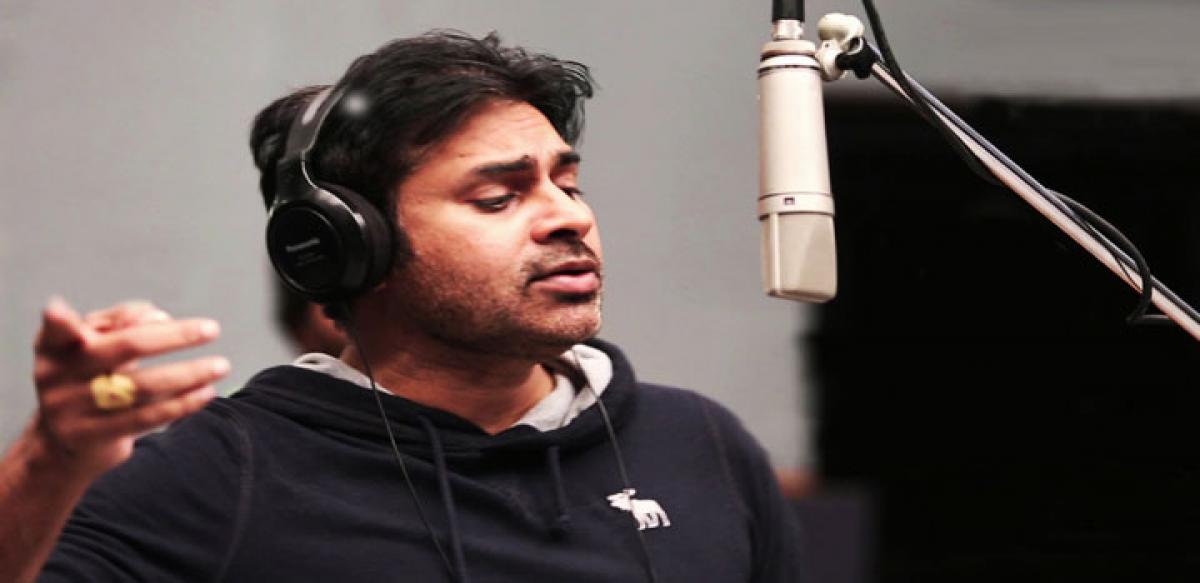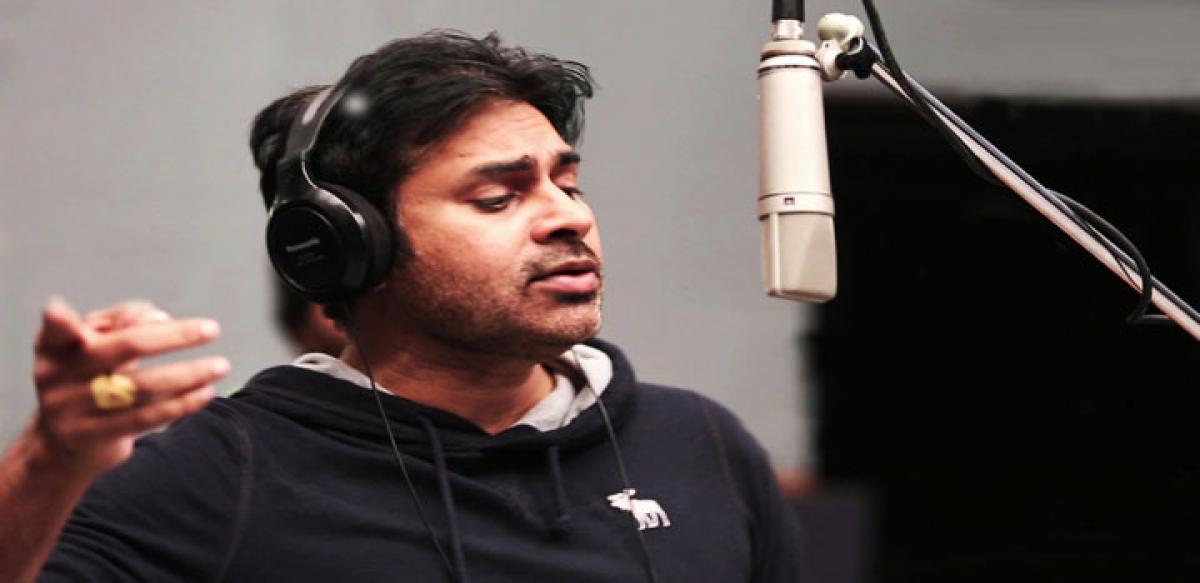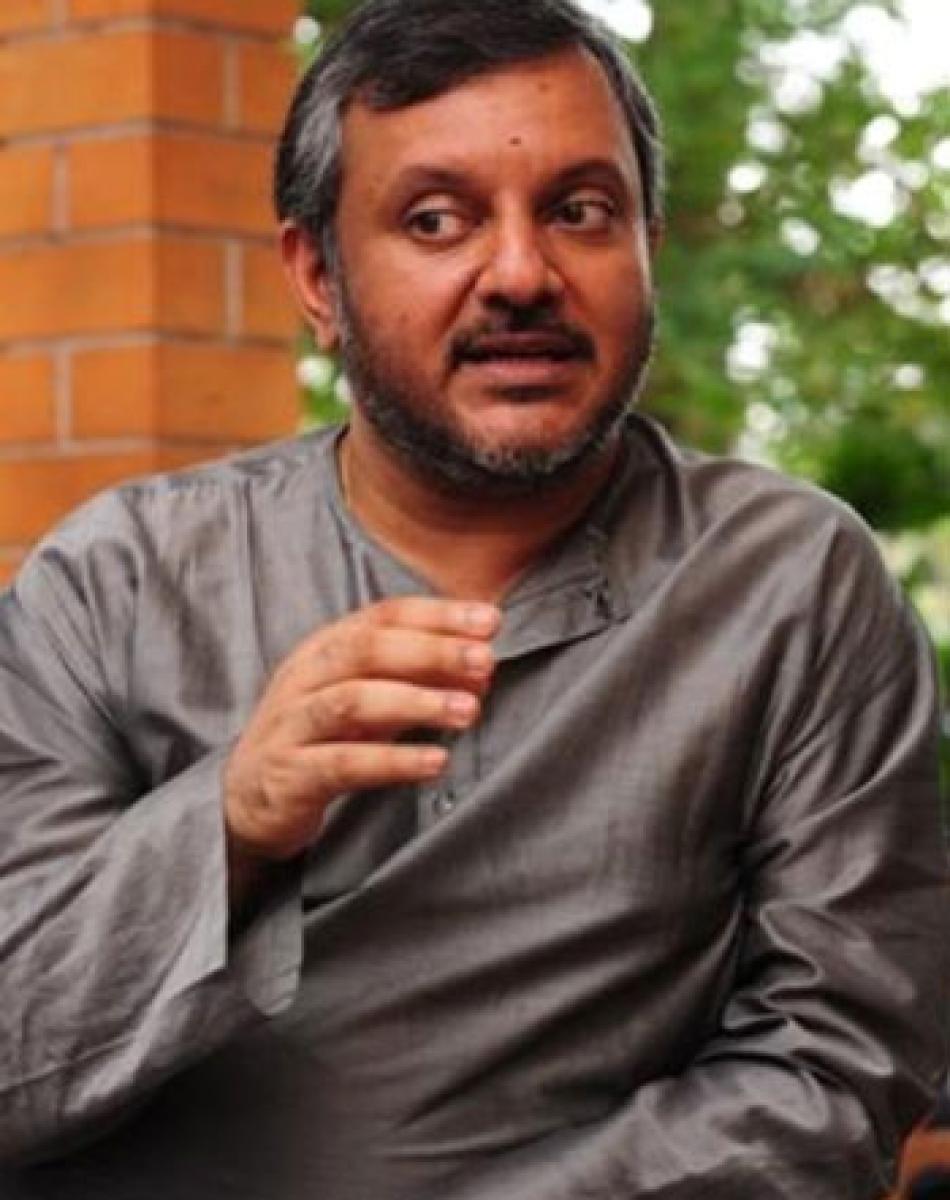Live
- Israel strikes multiple locations in Syria
- NC chooses Omar Abdullah as leader, set to be new CM of J&K
- Our goal is to strive hard for lifting trophy this year, says Maharashtra chief selector
- Tennis: Richard Gasquet to retire after Roland-Garros 2025
- Political stability, policy continuity to bring rigour to reforms towards Viksit Bharat: Amit Shah
- Tirumala Brahmotsavams: Lord Venkateswara appears on Surya Prabha Vahanam
- Murasoli Selvam, Stalin's brother-in-law and senior journalist, passes away
- Communicate politely with patients - Collector Badavath Santosh
- What are they trying to hide? BJP questions AAP over claims on CM's ‘Sheesh Mahal’
- Manasi Parekh on National Award win: Moment of pride to represent Gujarati culture on national stage
Just In

Music and literature are equally great fine arts akin to the two breasts of Saraswati the goddess of learning. While music is Apathamadhuram or pleases with its sweetness the moment it falls on the ear, literature is Alochanamrutham or nectar while ruminating. A combination of the two is what provides ‘Rasaswadana”(experience of the essence).
Rama Varma, the illustrious descendant of Maharaja Swati Thirunal and Raja Ravi Varma chose to bring out the beauty of the Telugu language through a bouquet of beautiful and rare compositions at a concert titled “Sundara Sumadhura” Telugu

Sangeetha mapi Sahityam Saraswatya Sthanadwayam
Ekamaapathamadhuram Anyadha Lochanamrutham
Music and literature are equally great fine arts akin to the two breasts of Saraswati the goddess of learning. While music is Apathamadhuram or pleases with its sweetness the moment it falls on the ear, literature is Alochanamrutham or nectar while ruminating. A combination of the two is what provides ‘Rasaswadana”(experience of the essence).
Over the years however Carnatic music has been reduced to an exercise in swaras with no attention paid to Sahityam (lyrics). The seriousness with which, the songs are executed, dearth of explanation of the lyrics and the total lack of connect are responsible for dwindling audiences at most concerts. An attempt to popularise lyrics set apart by the simplicity of language and profundity of meaning,
explain their significance and bring out their beauty through melodious singing with the involvement of the audience can draw crowds and responses that one sees at rock concerts and shows presented by Bollywood singers. To say that the younger generation is disinterested in classical music would be an anomaly. To say that we have failed to catch their attention is closer to the truth. A concert that proved this beyond doubt was held in Hyderabad and deserves special mention for this very reason.
“Sundari......he began the popular song looking at the enthusiastic crowd that requested it...”Sundari”......... repeated many young voices in chorus. As the song “Bala Tripura Sundari progressed...the musician paused....just a wee bit, and the crowd was ecstatic continuing where he had left ...until thunderous applause signalled the end of another beautiful song. The audience responded to every note, every slight nuance, every witty remark and the insightful introduction to each song as he took them along a remarkable musical journey that lasted over two hours and seemed to end all too soon.
Humid weather worsened by the sweltering heat from the camera lights, a mike system that tested one’s patience and a constant rearrangement of the audience in the front rows by the camera crew failed to dampen their spirit and they responded with an energy one rarely sees in Carnatic music concerts. The musician who captivated them was Prince Rama Varma the illustrious descendant of Maharaja Swati Thirunal and Raja Ravi Varma who chose to bring out the beauty of the Telugu language through a bouquet of beautiful and rare compositions at a concert titled “Sundara Sumadhura” Telugu.
Saptaparni in Hyderabad came alive with the sound of music as the artiste held centre stage with his favourite accompanists. SR Vinnu’s violin seemed like a melodious echo of the human voice, Harikumar’s mridangam reverberated in the heart region and Dr Karthick’s ghatam matched every note with a metallic ringing quality marked by controlled expertise and precise rhythm.
 Prince Rama Varma quoted the song “Antha Okkate--- Manamantha Okkate (We are all one) about the underlying unity of the Telugus written by the late Nyayapathi Raghava Rao popularly known as “Radio Annayya” and more relevant than ever today, before setting the tone for the concert through a beautiful rendition of “Mayatheetha Swaroopini” by composer Ponmiah Pillai from Tamilnadu.
Prince Rama Varma quoted the song “Antha Okkate--- Manamantha Okkate (We are all one) about the underlying unity of the Telugus written by the late Nyayapathi Raghava Rao popularly known as “Radio Annayya” and more relevant than ever today, before setting the tone for the concert through a beautiful rendition of “Mayatheetha Swaroopini” by composer Ponmiah Pillai from Tamilnadu.
This was followed by “Neevale Daivamu” composed by his favourite musician MD Ramanathan from Kerala. Kaiwara Amaranarayena’s “Emi Sethura Krishna” in the same tune as the popular tatvam sung by his Guru Balamuralikrishna ( Emi Sethu raa linga) took the audience by surprise as their “we know this” expression was ended by the unfamiliar but beautiful Krishna song.
Tyagaraja’s “Sarvaloka” Bhadrachala Ramadasa’s “Paahimaam Srirama ante” Annamacharya’s “Teliya cheekatiki, Pedda Tirumalacharya’s “Ekkadi Maanusha Janmam” Guru Balamuralikrishna’s “Vashama” formed part of the delectable fare which was capped by the racy Kadanakuthoohalam “Thillana “ by TV Gopalakrishnan. Kaiwara Amaranarayena’s “Chandamamanu Choosi vaddaama” and “Ramududbhavinchinaadu Raghukulammuna” were songs that came out of audience requests.
“Eme O Chitti” a song written by Prayaga Rangadasa (Dr.Mangalampalli Balamuralikrishna’s grandfather) to console his younger daughter who was miffed with her older sister was sheer magic and gripped listeners with its simple style. As he raised his hand to indicate the “Boogey man on the attic (Adigo boochivaadu Atakapainunnaadu)several heads turned back... so gripping was his rendition.
The defining moments of the concert were however the songs by Prayaga Rangadasa, Mallekonda Ramdasa and Etla Ramdasa, which are replete with lyrics that talk about the essence of life and timeless wisdom conveyed in mellifluous Telugu. “Betraayi Swami Devuda’ a song by Etla Ramdasa a stone cutter. who spontaneously composed a song on the ten incarnations of Vishnu after a frog leapt to life from a rock that was split into two, became popular after actor Pawan Kalyan sang a couple of lines from it in his film.
Prince Rama Varma reminded the audience about this, before singing another lovely song that originated from him, “Anda Pinda Brahmanda Vicharana Pandithulaku Eruka” (It is only the scholarly, who enquire about the origin of life and the universe).”Maybe this too will become famous if Pawan Kalyan sings it” he quipped.
The song through appropriate examples dwells on the differences between the learned and the ignorant, the sensitive and the insensitive the deserving and the undeserving. “Sumarasa madhuri kramamuga groluta, Bramarambulakeruka (Only a honey bee that savours it is aware of the sweetness of nectar) “Paamaramuga rakthapaanamu chesae Domalakemruka? (Can an ignorant blood sucking mosquito ever know this?). After the concert one felt like the satiated honey bee filled with the nectar of soulful melodies. The sweetness lingers.

© 2024 Hyderabad Media House Limited/The Hans India. All rights reserved. Powered by hocalwire.com







